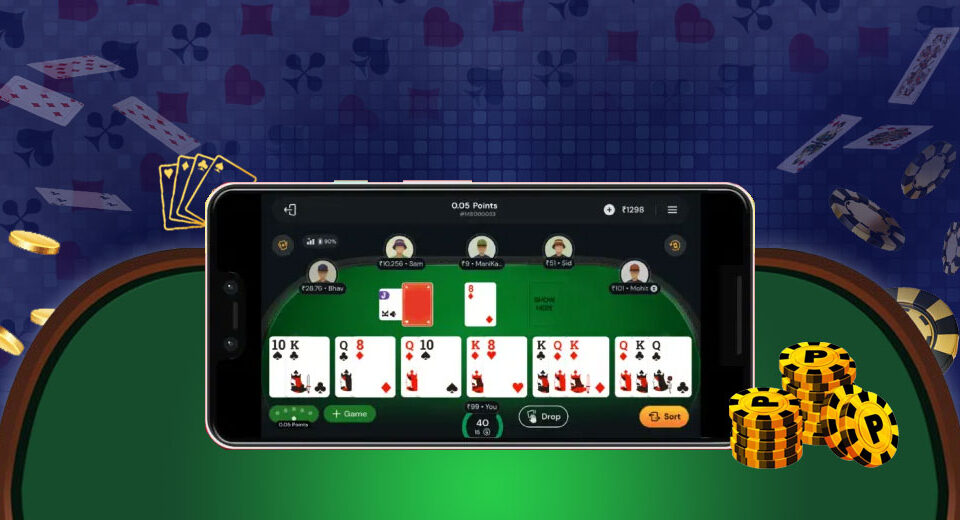How Pool Rummy Encourages Strategic Patience
In the evolving world of Indian Rummy, Pool Rummy stands out for demanding not only skill but a rare quality: strategic patience. Unlike faster-paced formats like Points Rummy, where rounds are quick and decisions are often reactive, Pool Rummy stretches across several rounds until players hit an elimination threshold. This longer format shifts the focus from impulsive moves to a more composed and planned approach. To succeed in Pool Rummy, players must consistently make decisions that protect their score while waiting for opportunities to strike. In essence, the format teaches the art of calculated waiting - a fundamental principle of long-term success in the online rummy game environment.
Opening Rounds Set the Tone
In Pool Rummy, the initial rounds are not about quick declarations. Instead, they are a platform to observe, build, and adjust. A player who rushes to win without studying the table dynamic risks exposing weak patterns or burning valuable cards. The game rewards those who can bide their time, form strong foundations with pure sequences, and avoid accumulating unnecessary points. During early gameplay, one must learn to fold weak hands with the first drop and protect strong hands without revealing intentions. Strategic patience begins here - with the ability to wait through average hands and act decisively only when the time is right.
Score Preservation Over Quick Wins
The elimination model of Pool Rummy - where each player begins with a set point limit, like 101 or 201 - makes score preservation a priority. Unlike formats where each round resets, Pool Rummy carries the weight of every point across multiple rounds. This structure compels players to focus not just on winning, but on not losing heavily. The focus shifts from aggressive plays to carefully managing risks, reducing hand value during losses, and dropping at the right time. Strategic patience means knowing when a round isn't yours to win - and having the discipline to exit before damage is done.
Reading the Flow of the Table
Every Pool Rummy table has its own rhythm. Some players are conservative, others are aggressive, and these tendencies evolve as the game progresses. A patient player does not just react - they read. Paying close attention to discard patterns, repeated suits, and delay in picking from the open pile reveals a lot about your opponents. Over several rounds, this information becomes vital in adjusting your strategy. Waiting to reveal your strong hand until the right moment, rather than racing for a declaration, often delivers better outcomes. This is patience, sharpened by observation - a core skill in Indian rummy card game formats like Pool Rummy.
Using Jokers Without Rushing the Hand
Common mistakes in Pool Rummy is rushing to create impure sequences or sets with jokers at the first opportunity. A patient player understands that jokers are best used when they fill in strategic gaps rather than creating a shortcut. Especially when close to forming a second sequence or completing a high-point set, using the joker prematurely can lead to a blocked hand. Waiting a round or two, while managing points safely, can create a much stronger formation. Indian rummy rules reward well-formed hands more than fast ones. Timing joker usage is one more example of how this format encourages restraint over urgency.
Recovering from Losses Calmly
Pool Rummy isn’t about a single round. Losing one hand doesn’t end the game - but reacting to that loss hastily in the next round can. Strategic patience helps players recover calmly, maintain composure, and plan a comeback across the game. After a high-point round, skilled players switch to a defensive mindset. They play safer hands, take early drops, and wait to regain control rather than attempting immediate recovery. This temperament is essential to staying under the point threshold while setting up future opportunities to declare confidently.
Planning Long-Term, Not Just the Round
In Pool Rummy, you play not just to win a hand but to outlast others. This long-term view is the foundation of strategic patience. From remembering discarded suits over several rounds to recognising when an opponent is nearing the point limit, planning extends far beyond your current cards. Consistency, memory, and decision sequencing become more important than short-term victories. Players who approach Pool Rummy with this outlook understand that the game is less about moments and more about momentum.
Conclusion: Pool Rummy rewards those who wait wisely and strike with purpose, not pressure.
Pool Rummy transforms the playing Indian rummy experience from a quick-play scenario to a strategic journey. It teaches players the importance of waiting, observing, adjusting, and staying composed over multiple rounds. Winning here requires more than card-matching skills - it demands patience that is both tactical and psychological. Those who embrace this tempo not only survive longer at the table but often emerge as the most refined and successful players. Pool Rummy, in its extended and thoughtful structure, proves that in Indian rummy online, sometimes the smartest move is simply waiting for the right one.




